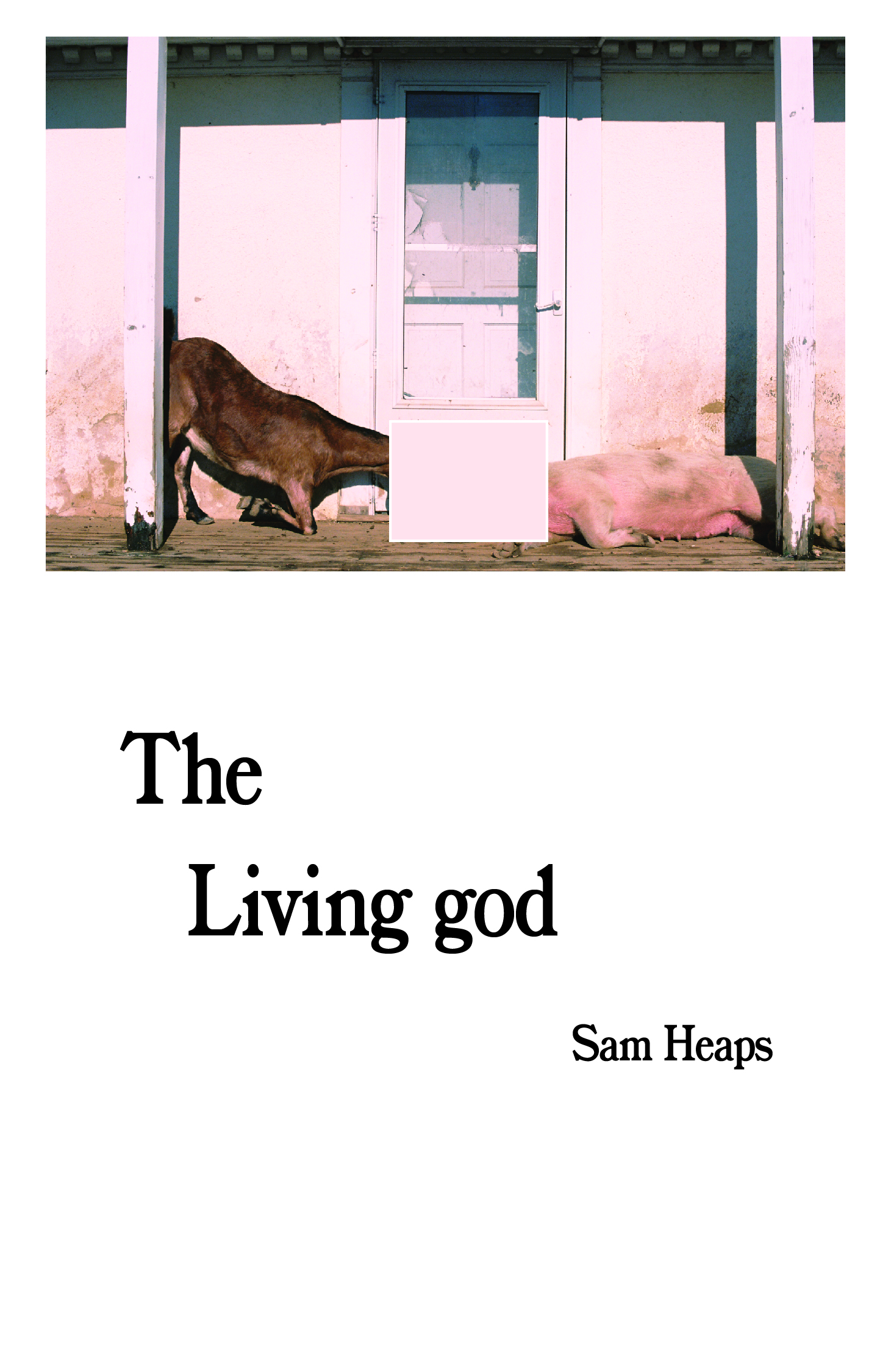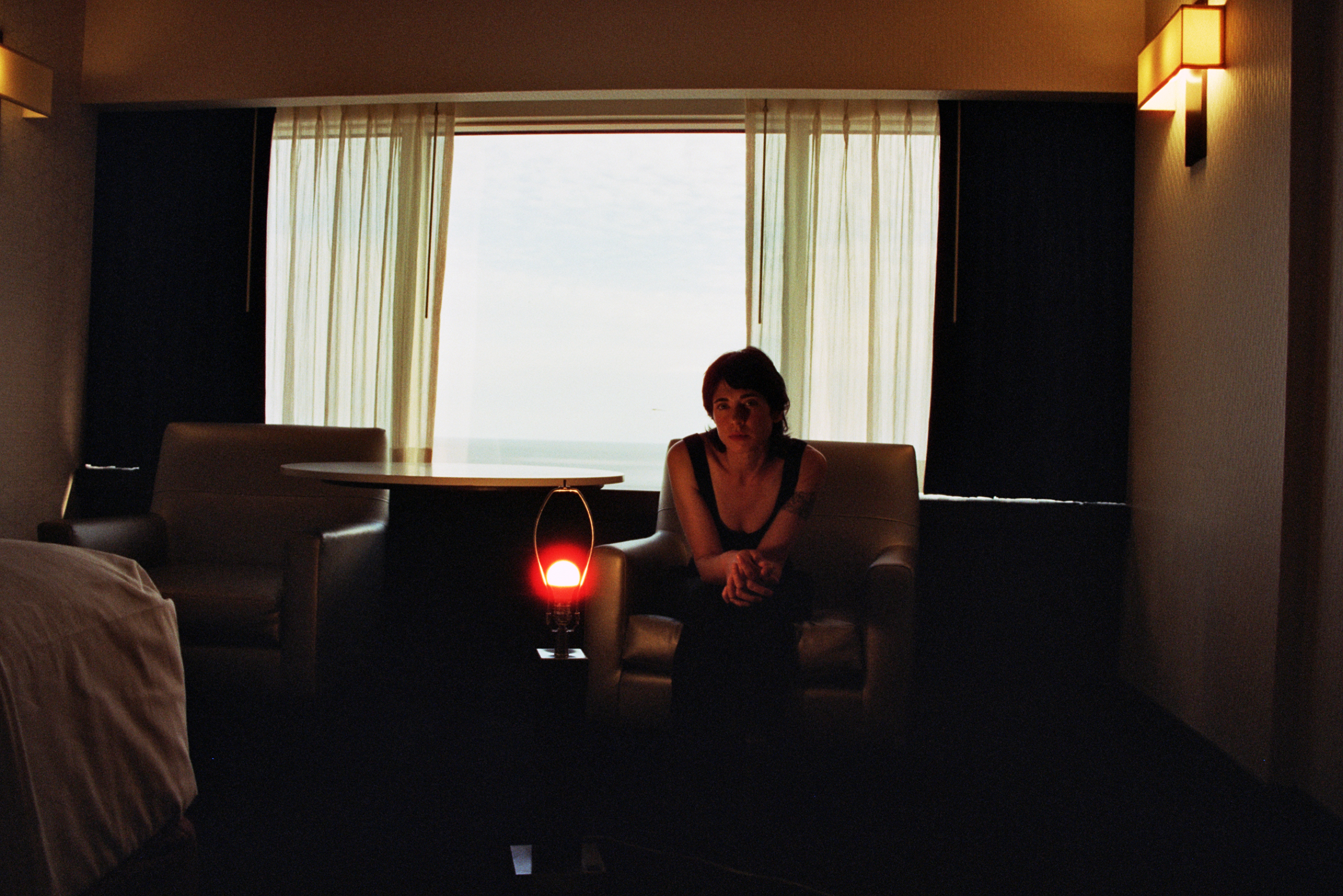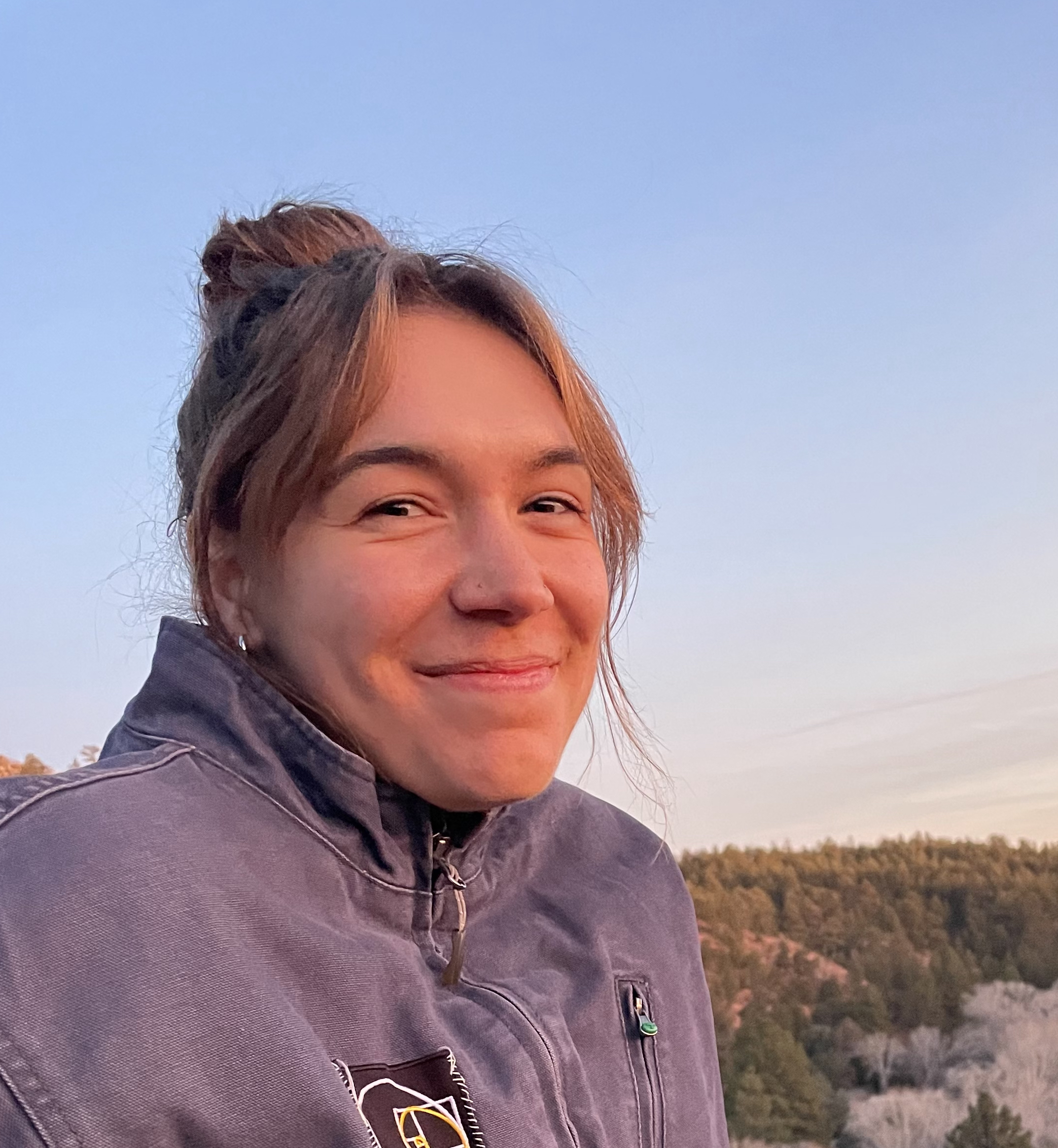Sam Heaps’s novel, The Living god (SARKA, 2025), centers religious commune defectors in rural Montana. As storms blow through in the wrong season, blood-stained scenery whizzes past along highways, and overlapping pains converge in a packed hospital, we follow “baby” and her lover Jesse as they navigate their lives exiled from their former community, its prophetess, and its complicated promises of salvation.
Over 24 hours, The Living god folds in and out of sleep, baby’s memories, and her present reality, layering time and trauma into an apt dreamscape of polycrisis. Readers along for the ride contend with the perennial closeness of living and dying in a world haunted as much by our ancestors as by our future ghosts.
Heaps is a writer, organizer, and teacher based in Philadelphia. Their memoir, Proximity, was published by Clash Books in 2023. Heaps and I spoke about writing through personal and political crises, the intimacy of dreams, and what it means to long for community in 2025.
***
Maia Sauer: I’d love to hear how your own sense of time shaped The Living god. What did your life look like while writing this book?
Sam Heaps: Apropos of nothing that just happened [with Charlie Kirk], it's hard not to think about archetypal political figures and changing landscapes of time. Working on this book was [a process of] working through personal crises, but also working through existential terror and dread. The characters very much are dealing with this, and dealing with the insurmountable——or, the beautiful but difficult——task of finding meaning in living. In America, there aren't a lot of places to do that. Traditionally, there's the church, there's the nuclear family structure, there's capitalism. Those are your options, really. And [these characters] are trying to do something else. They’re afraid, and I think they all recognize that a big paradigm shift is coming, but then they behave in ways that you would expect them to behave. I don't think “baby” does anything surprising. I was interested in how the ways in which we have free agency are determined by our social expectations. In what ways can we escape and find change and goodness?
With Proximity, I was really lucky. I got to write it in like three months during the pandemic, so I was teaching a couple classes, but it wasn't a big impediment to my life. For The Living god, I was working full time. I was writing this in the evenings, in the dark, and then during the two week breaks I would have in the winter. That had a really big impact.
I was also working as a labor organizer. I felt like a missionary, in a lot of ways, and it sometimes made me very uncomfortable. I was talking to people in these hour-long bursts about some of the worst things that they'd ever experienced in the workplace, how meaningless their lives felt, how they were being fucked by the system. I think that [experience] was in this project, and is still continuing to influence what I'm thinking about. I just had a class on the alienated or bifurcated self, according to Marx, so I’m [still] thinking about the ways in which we are not any kind of self, because of the labor that we do, and because of the ways that it takes over time.
MS: With Lullaby Machine, we’re interested in what different versions of rest are available to people at different moments of their lives. I read much of The Living god through this lens, observing how these characters perceive their limited options.
SH: Well, yeah there aren't many. I don't feel like there are. I mean, [the characters] baby and Elaina are ostensibly very lucky, in the sense that neither of them work particularly hard. They do things for work that people would like to do, I guess, and Jesse inherited land. They all kind of live in this fantasy reality, where they have the hours of their days to themselves, but there's still this material need that’s never quite met. They're making a lot of sexual and identity sacrifices in order to meet the physical demands of the body. Deep psychological impact there.
A lot of the women in this book find that the body is the tool that they have to keep them housed and fed, which I think is incredibly normal. I think we do talk about it, but the extent to which everyone does it is maybe not acknowledged as much. It's definitely something I was thinking about. What would respite or rest look like for them? In baby and Jesse's cases, you know, the book ends how it ends. They make the choices they make.

MS: I’m curious about this quote where baby explains her skeptical thoughts about the TV show, The Bachelor: "I should change this belief before the baby is born. I should save her from these projections and look only with optimism." What is your relationship with optimism? How has telling baby's story complicated or clarified that relationship?
SH: I don't think I'm a particularly optimistic person, but I don’t think that means that I'm cynical, and I have great reason to find joy and hope, in communities, in particular. I think optimism is sometimes a way of looking away from issues, or just hoping for the best and not really taking day to day actions to see that happen. So, I'm wary of optimism, but I think that's not the same as saying I don't see a lot of good.
It's funny, you write these things a long time before they come out. When I was writing this, I was thinking a lot about loss, but I was also thinking about whether or not it was ethical to bring life into the world. I'm pregnant now, and so I do think that, after mulling it over. I guess that's optimistic, in a sense. But I don't know if baby's there yet, or if I was there yet [while writing.]
MS: There's both a longing for community in this book and a skepticism toward a cure-all version of it. I see baby wrestling with this dynamic, in contrast to the unquestioning followers of the religious community, who seem to favor a salvation-focused version of community that displaces their bodied, mundane desires. What are the pitfalls of idealizing community without nuance?
SH: I think there's a very small distinction in a lot of spaces between a community and a clique. And there are really intense hierarchies that get embedded into community systems very quickly that are invisible to the people inside them or are actively ignored. I think it is incredibly dangerous.
I don't know what the other option is. I want to be very clear. Like, I just started grad school again, I don't know what the other option is, okay? But it feels very concerning to me that in order to connect with one another, we have to create these groups that are really keeping people out, that are drawing up lines of aesthetic affinity or lived experience or relatability and then creating hierarchical systems and using them as an opportunity to create a barrier. I mean, that's everything that's wrong in the world. People are obviously doing this with their relationships. Everyone in my community is poly——I'm not, so I don't know what that says, but I think there has to be a more porous, ethical way to exist. Right now, particularly in this country, everything resembles a nation state. Every social structure seems to mirror that.
MS: How do you hear people voice their desires for community in your labor organizing work?
SH: People will outright say they are lonely. A lot of these people say: I don't know anyone else in my department. I see no one all day. People would really be excited to come to the happy hours or the rallies, not necessarily because they're interested in the cause, but because they're lonely and they're looking for something. That also felt bad, because it felt like preying on people's needs, the way that religions do.
Also, my students are very candid about being lonely and struggling to find community. There are many reasons for it. I mean, everyone’s talked about Covid and technology, but these structures have also been in our nation since the beginning. This is the natural way that it would progress. So, I understand the desire for community, and I want everyone to be friends with each other. I'm just very worried about the structures we're creating that could ultimately exacerbate the issue.
MS: To speak to the digital version of loneliness, I'm noting that the book very much acknowledges contemporary material experience, but none of these characters are online. What’s your relationship to the internet, as an educator and writer?
SH: I mean, I pretty obviously don't understand [the internet].
MS: Ha, maybe no one totally does.
SH: I think some people do! And I see the ways it's valuable. It did seem like this great, utopian space of connectivity when it first started. To see it get this dark this fast is harrowing. But I think mainly I don't understand it and don't want to spend the time to navigate it.
An editor asked me: Wouldn't you like [the character] Elaina to have an Instagram presence? Wouldn't you like to share some tweets? I was like, No. I just know I don't.
I think the issues that are happening on the internet are kind of timeless. [Similar things] keep happening in different ways, whether in a forum in Rome, or on Twitter. But I don't care for [the internet] aesthetically. I don't like self-promoting. I don't understand why everyone has to post a selfie for the algorithm.
It's a direction I definitely could have gone [with Elaina]. But as someone who really struggled with eating disorders and sexual addiction and alcoholism, the connection to the body is a really meaningful part of everyday living for me. I feel the kind of distance that I felt when I was, like, severely anorexic, when I'm scrolling. So I think that was part of it, of wanting to stay in the bodily experience of [the characters] as long or as much as I could in the book.
MS: I want to make sure I get to the spirits in the book; Mystical beings often collect in the physical corners of rooms in both mundane and pivotal moments of action. Were spirits always animated characters in the book, or did they filter in later in your writing process?
SH: They kind of came up. Whenever I'm in a motel room, I'm thinking about everyone who's been there. Sometimes you can see evidence of them. Although this is baby's story, there are ways in which her story is connected to everybody else's. I wanted to express that, and I was thinking about the ways in which a space where we are in pain is shared with so many people who share that pain. The spirits just kept coming. I was like, Okay, well, here you are. Even though it’s painful, I think it’s beautiful that [baby] is able to connect to these other narratives and stories and be attentive to that in her state. So yeah, [the spirits] came up pretty organically.
MS: At one point, baby claims: "I know people only like to hear the dreams of the people they love." What's your relationship with dreams?
SH: I love dreams. I feel that I live a very full life in my dreams, and I feel a deep loss when I don't get to spend time in them and spend time evaluating them. I love hearing other people's dreams. I love how obvious it is when you hear someone else's psyche do something, and how difficult it is to unravel your own, when it happens. I love the people I meet in dreams. I think a lot of my books start in dreams. They are bodily, you know. Very physical and important.
MS: What do you think we could learn from a more pointed attention towards strangers' dreams?
SH: I think there's an inherent intimacy, if people are honest about what they're dreaming. You can't lie in a dream. There's always something kind of humiliating that they're sharing that they don't know is humiliating, which is beautiful. I think it's beautiful to be humiliated, occasionally. It's a great way to gain a level of access that you wouldn't have generally. I think Jesse's dreams, in particular, in the book, are almost a kind of reincarnation or past life cycle. But they are also truths about himself that he can't access and that he's giving away.
MS: Maybe there's also an imperative to just sit with the humiliation or strange, complicated feelings we don’t hold space for in our waking lives.
SH: Yeah, there's no way to run away from that in a dream. I think that's significant.
MS: It feels notable that throughout the book, these characters make attempts to run away and then experience moments of hitting the brakes, where the body itself feels like both a reality to contend with and also a way through.
SH: I was thinking about grief and about the climate crisis a lot. All of our social issues, all of our relationship issues, are all connected to an extreme attachment wound. We're hurting and abandoning——and simultaneously being abandoned by——[the Earth,] the thing that we need most and the thing which we should love most. When I'm thinking about the body, I'm thinking about that connection, and that's one of the reasons I wanted to stay rooted there.



